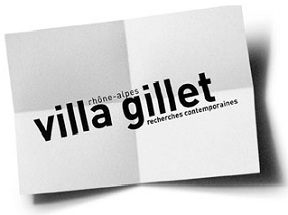In Praise of Babel
Robyn Creswell is an Assistant Professor of Comparative Literature at Brown University and poetry editor of The Paris Review. He is the translator of Abdelfattah Kilito’s The Clash of Images (New Directions, 2010) and Sonallah Ibrahim’s That Smell and Notes from Prison (New Directions, 2013). A former fellow of the Cullman Center at the New York Public Library, his essays and reviews have been published by Harper’s Magazine, The New York Times Book Review, n+1 and The Nation.
The myth of Babel does not exist in the Quran as such. There is no mention of a place with that name, nor is there a story telling of the division of an original language into multiple tongues. But Arab exegetes of the classical period knew of the myth from Judeo-Christian sources and they liked it enough to smuggle the story back into their own tradition. A number of ambiguous surat were taken to refer to the Babel tale, “the myth of myths,” as Jacques Derrida has called it. There is, for example, the sura of the Bee, which begins by reminding believers of the various bounties God has granted them: all kinds of fruit, mountains to stabilize the earth, landmarks and stars for navigation. It then reminds believers of the fate of idolaters, who “have schemed in the past, and consequently, Allah destroyed their building at the foundation, causing the roof to fall on them. The retribution struck them when they least expected.” [16:26] This passage and others were read by classical commentators as referring to the infamous tower, whose builder they also identified with Nimrod. And like Jewish and Christian commentators, Muslim exegetes understood the Babel story to be a parable of how mankind’s hubris, in the form of a desire for knowledge or an attempt to reach the heavens, leads to divine punishment. The subsequent confusion of human idioms and scattering of peoples is a second fall from grace, an expulsion from the paradise of monolingualism. Henceforth, translation becomes at once necessary and impossible—impossible in the sense that no translation could ever match the transparency of the original Ur-Sprache. So the Islamic tradition, like the Judaic one in particular, comes to bear a tremendous nostalgia for the lost language of Eden.
In La langue d’Adam, a series of four lectures presented at the Collège de France, the Moroccan critic Abdelfattah Kilito has scrutinized this Islamic tradition of speculation about the language of genesis and the story of Babel. It is a story with especially deep resonance in the Maghrebi context, whose linguistic and intellectual geography is defined in some sense by the mundane fact of bi- or multilingualism, “the mystery of many tongues,” as George Steiner has put it. Beyond the conventional interpretation of the myth, in which transgression leads to divine punishment, Kilito points to a less well-known strand of Islamic exegesis, stemming from the geographer Yaqūt and the greatest of Arab lexicographers, Ibn al-Manzūr. This alternate tradition tells of a great wind that gathers all the human tribes together at a place called Babel, and then apportions to each of them a distinct language. This narrative strongly recalls the Christian episode of Pentecost, where the Apostles are also gathered together and receive the “gift of tongues”: “Suddenly there was a noise from heaven like the sound of a mighty wind. It filled the house where they were meeting. Then they saw what looked like fiery tongues moving in all directions, and a tongue came and settled on each person there” [Acts 2:2-3]. Building on this tradition, we might suggest that the myth of Babel can be read not only as a story of divine chastisement, but one of divine gift-giving. For it is only through making distinctions of tribe, culture, and language, that humans come to have knowledge of one another: knowledge of themselves in their differences. Or, in the words of a Quranic verse: “O people, we created you from the same male and female, and rendered you distinct peoples and tribes, that you may recognize one another” [49:13].
Such a rereading reminds us that knowledge of the self—including knowledge of one’s “own” language—often arrives via some form of estrangement. Who knows if the Islamic interpretation of the Babel myth—a (mis)reading that arises out of an estranged sense of its own tradition—doesn’t do justice to the one we find in Genesis? Verfremdung, its pitfalls and pleasures, are one of the themes of Kilito’s own fiction, written in French as well as Arabic. The Clash of Images, a collection of short stories I’ve translated into English, narrates the progression (or translation) of a young boy growing up in Rabat from the old world of Arabic texts—the Quran, the Thousand and One Nights, classical poetry—to the new world of French comic books and American films. One consistent suggestion of these stories is that the world of books and reading cannot be fully recognized, or perhaps even fully experienced, until the narrator is forced to leave it by venturing out into the French lycée. More generally, a rereading of the Babel myth along the lines suggested by Yaqūt and Ibn al-Manzūr allows us to think about the effect of conceptualizing translation as the recognition of difference rather than the substitution of the same for the same. In this light, mistranslation or the failure of translation, may come to seem both necessary and desirable.
Cette ressource a été publiée dans le cadre de la cinquième saison du festival "Walls and Bridges", organisé par la Villa Gillet, qui s'est déroulé à New York du 9 au 18 octobre 2013.
Pour citer cette ressource :
Robyn Creswell, In Praise of Babel, La Clé des Langues [en ligne], Lyon, ENS de LYON/DGESCO (ISSN 2107-7029), novembre 2013. Consulté le 03/07/2025. URL: https://cle.ens-lyon.fr/anglais/litterature/entretiens-et-textes-inedits/in-praise-of-babel



 Activer le mode zen
Activer le mode zen![[title-image]1332154748326[/title-image] Robyn Creswell © Pamela Flanagan](https://cle.ens-lyon.fr/anglais/images/creswell_1385121813845-jpg)



